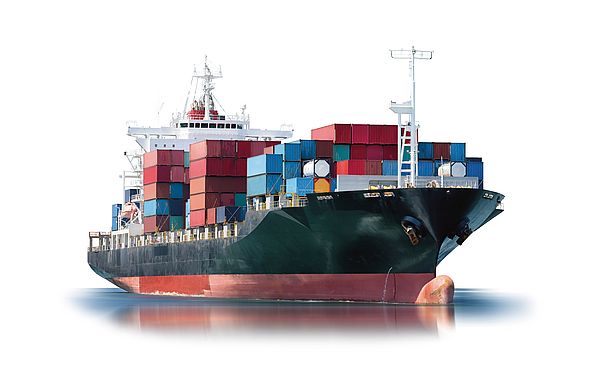Marine Scrubbers - Flue Gas Desulphurization
In order to comply with the relevant legislations of the International Maritime Organization (IMO) concerning the limitation of the pollution emission, cleaning of the exhaust gas has bcome indispensable. Marine scrubbers are an economical and environmental friendly solution to remove sulphur oxides from the exhaust gas of ship engines and to protect air and water quality.

Corrosion in exhaust gas cleaning systems
The alloys used in these scrubbers are exposed to sulfur and chlorides from the exhaust gases, and the seawater causes a high wet corrosion load. Coaction of these different parameters may cause different types of corrosion. The life span of flue gas desulfurization systems depends significantly on the chosen material and its corrosion resistance. When using inappropriate stainless steels or alloys, the composition of the exhaust gases may cause corrosion that leads to damages of the scrubber in a short period or to a complete failure of the system.
Nickel alloys have proven resistance to a wide variety of aqueous corrosive environments typically encountered in flue gas cleaning technology. Nickel by itself is a versatile corrosion resistant metal. More importantly, its metallurgical compatibility over a considerable composition range with a number of other metals as alloying elements has become the basis for many binary, ternary, and other complex nickel alloy systems. The result of this is a very unique and specific corrosion resistance, which can be used to handle the different levels of corrosive impact in flue gas cleaning equipment.
Scrubber systems
Open loop
The open loop scrubber system uses seawater and its natural alkalinity for cleaning the exhaust. The exhaust gas enters the scrubber and is sprayed with seawater. The sulfur oxide of the exhaust gas reacts with the water and forms sulfuric acid. The system does not need any caustic soda. Afterwards the water is led through a filter system, where it is diluted to raise the pH to the natural pH of the surrounding seawater before discharging. The amount of dilution water depends on the area where the vessel is operating. The residue of the filtration process is collected in sludge tanks and can be disposed at harbors providing waste management devices. This scrubber system can be used in most parts of the oceans where alkalinity levels are sufficient.
Closed loop
The closed loop scrubber system works continuously in a closed loop, circulating the wash water within the scrubber. The exhaust gas of the diesel engine enters the scrubber and is sprayed with wash water that has been saturated with an alkali, for example caustic soda (NaOH) or magnesium oxide (MgO). The sulfur oxide of the exhaust gas reacts with this solution and binds as a salt; the sulfur oxide is neutralized. The leaned exhaust gas exits the scrubber through a demister. The dirty water is filtered and sludges are collected in a tank. The water is inspected and can be discharged without harm to the environment or can be stored in a separate tank when the vessel is in a zero-discharge area. The alkalinity levels of the sea water do not have to be considered as water is mixed with an alkali to increase the alkalinity for the chemical reaction with the sulfur emission. This system is used in harbors and in water with low alkalinity levels like the Greater Sea areas. The tanks with the sludge and collected water can be discharged at harbors offering waste management systems.

Download further informationen
Our brochure on Flue Gas Desulphurization, Marine Scrubbers - Exhaust Gas Cleaning, offers more and detailed information. Feel free to download it. In the case of any questions, please contact us.



